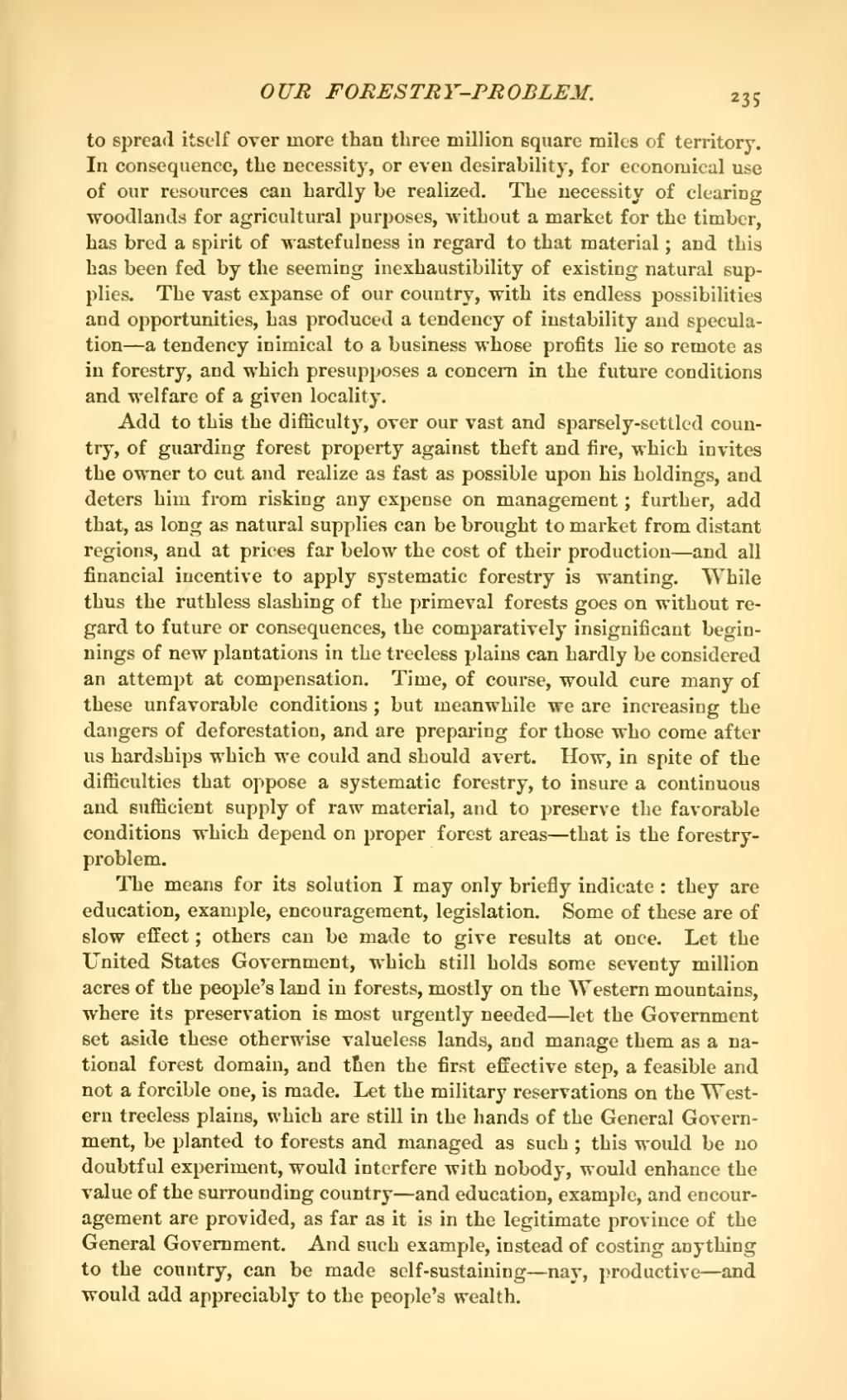to spread itself over more than three million square miles of territory. In consequence, the necessity, or even desirability, for economical use of our resources can hardly be realized. The necessity of clearing woodlands for agricultural purposes, without a market for the timber, has bred a spirit of wastefulness in regard to that material; and this has been fed by the seeming inexhaustibility of existing natural supplies. The vast expanse of our country, with its endless possibilities and opportunities, has produced a tendency of instability and speculation—a tendency inimical to a business whose profits lie so remote as in forestry, and which presupposes a concern in the future conditions and welfare of a given locality.
Add to this the difficulty, over our vast and sparsely-settled country, of guarding forest property against theft and fire, which invites the owner to cut and realize as fast as possible upon his holdings, and deters him from risking any expense on management; further, add that, as long as natural supplies can be brought to market from distant regions, and at prices far below the cost of their production—and all financial incentive to apply systematic forestry is wanting. While thus the ruthless slashing of the primeval forests goes on without regard to future or consequences, the comparatively insignificant beginnings of new plantations in the treeless plains can hardly be considered an attempt at compensation. Time, of course, would cure many of these unfavorable conditions; but meanwhile we are increasing the dangers of deforestation, and are preparing for those who come after us hardships which we could and should avert. How, in spite of the difficulties that oppose a systematic forestry, to insure a continuous and sufficient supply of raw material, and to preserve the favorable conditions which depend on proper forest areas—that is the forestry problem.
The means for its solution I may only briefly indicate: they are education, example, encouragement, legislation. Some of these are of slow effect; others can be made to give results at once. Let the United States Government, which still holds some seventy million acres of the people's land in forests, mostly on the Western mountains, where its preservation is most urgently needed—let the Government set aside these otherwise valueless lands, and manage them as a national forest domain, and then the first effective step, a feasible and not a forcible one, is made. Let the military reservations on the Western treeless plains, which are still in the hands of the General Government, be planted to forests and managed as such; this would be no doubtful experiment, would interfere with nobody, would enhance the value of the surrounding country—and education, example, and encouragement are provided, as far as it is in the legitimate province of the General Government. And such example, instead of costing anything to the country, can be made self-sustaining—nay, productive—and would add appreciably to the people's wealth.
